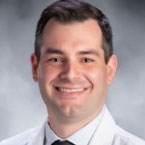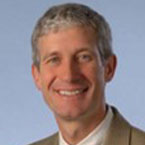By: Christopher Jaeger, MD, MMSc & Martin Kaefer, MD, FAAP
Testicles are the organs in the body with cells that produce the hormone testosterone. The testicles also contain other cells, called germ cells, that produce sperm. Testicular cancer typically occurs when germ cells
change into cancer cells. These cancer cells can grow in one or both testicles.
How common is testicular cancer in kids and teens?
Testicular cancer in children and teenagers is very uncommon. It makes up only about 4% of all cancers in children and teenagers.
Typically, testicular cancer happens in teenage males. It is rare for it to occur before puberty. However, benign, or non-cancerous, tumors in testicles may develop before age 12 that are not life-threatening.
It is important to know that even if testicular cancer is diagnosed in your child, it is highly treatable. Cure is always the goal of treatment.
What are some signs & symptoms of testicular cancer?
Early detection of testicular cancer is key for the best treatment. Testicular cancer is not usually painful. Common signs of testicular cancer in children and teenagers are swelling in the testicle, for example. There may also be a change in the shape of the testicle.
How is testicular cancer diagnosed in children and teens?
If your pediatrician suspects testicular cancer, they likely will order an
ultrasound of the testicles and blood tests called
tumor markers. They may also refer your child to a
pediatric urologist or a
pediatric surgeon for further testing and treatment.
How is testicular cancer treated?
After diagnosis, a treatment plan for your child can begin.
Surgery
The first step to treat testicular cancer is for a pediatric urologist or pediatric surgeon to surgically remove the testicle.
For children who have not yet reached puberty, the surgeon may be able to remove the tumor and preserve the rest of the healthy testicle. In this "same day" or outpatient surgery, a small cut is made in the groin.
Your child may have some
pain where the cut was made in the groin, but this is only temporary and does not require narcotics. The pediatric urologist or pediatric surgeon will then wait for the pathology report and more blood tests.
Staging
These test results help to determine the severity of the testicular cancer. This process in cancer diagnosis is called "staging." Pediatric oncologists often help with the staging process. Once determined, the cancer's stage drives further treatment and follow-up.
Follow-up care
In patients with lower-stage testicular cancer (like stage 1), surgery may be the only treatment that is necessary with close follow-up. Follow-up means more blood tests and imaging.
For patients with higher-stage testicular cancer (such as stages 2-4), chemotherapy may be recommended. Chemotherapy is prescribed by a pediatric oncologist and may need to be taken for several months.
Some patients with higher-stage testicular cancer may also be recommended to get another surgery where the lymph nodes in the abdomen are removed.
What is the outlook for kids diagnosed with testicular cancer?
If your child is diagnosed with testicular cancer, you will likely have questions about their chances of survival. In children and teenagers, the prognosis of testicular cancer is usually excellent, but every case is different. Consult with your child's medical specialists for more detailed information on their prognosis.
Does treatment for testicular cancer cause side effects?
Cancer treatment can cause side effects. Which side effects your child might have depends on the type of treatment.
Sometimes, the side effects can occur much later in life after the treatment. Physical problems like infertility, or the inability to produce children, may be caused by chemotherapy. A conversation with your child's doctors about
fertility preservation is recommended before treatment starts.
Where can our family go for support?
Every member of the family needs support when caring for a child with cancer. It is recommended to reach out to the treatment team and people in the community for support. To learn more, see "When a Child or Adolescent Is Diagnosed with Cancer: Words of Support for Parents" and "Support for Families When a Child Has Cancer."
Remember
If your child has testicular cancer, it is treatable usually with an excellent prognosis. Don't hesitate to talk with your child's doctor if you have any questions or concerns.
More information
About Dr. Jaeger
 Christopher Jaeger, MD, MMSc, is a pediatric Urologist at Corewell Health Children's Hospital in Royal Oak, MI. He is an instructor of Urology at the Oakland University William Beaumont School of Medicine and is an education committee member in the AAP Section on Urology. Christopher Jaeger, MD, MMSc, is a pediatric Urologist at Corewell Health Children's Hospital in Royal Oak, MI. He is an instructor of Urology at the Oakland University William Beaumont School of Medicine and is an education committee member in the AAP Section on Urology.
|
About Dr. Kaefer
 Martin Kaefer, MD, FAAP, is a pediatric Urologist at Riley Children's Hospital in Indianapolis, IN. He is a professor of Urology at Indiana University and is an education committee member in the AAP Section on Urology. Martin Kaefer, MD, FAAP, is a pediatric Urologist at Riley Children's Hospital in Indianapolis, IN. He is a professor of Urology at Indiana University and is an education committee member in the AAP Section on Urology.
|